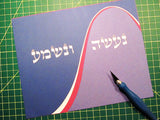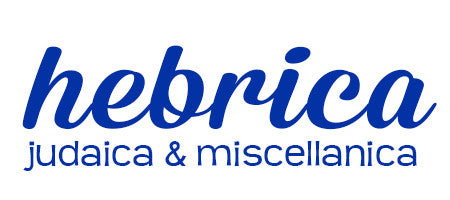 In parshat Mishpatim, as the Israelites prepare to receive the Torah, they say to Moses, "Na'aseh v'nishmah," we will do, and we will hear (Ex. 24:7). The "doing" part is pretty clear, considering the instructions about to come, but why does the text say "we will hear" after the doing? This has been a conundrum through the ages. After all, the "nishmah" part comes from the Hebrew root shin-mem-ayin, which has a meaning of far more than just the physical act of hearing. It also means to heed, to understand, to obey.
In parshat Mishpatim, as the Israelites prepare to receive the Torah, they say to Moses, "Na'aseh v'nishmah," we will do, and we will hear (Ex. 24:7). The "doing" part is pretty clear, considering the instructions about to come, but why does the text say "we will hear" after the doing? This has been a conundrum through the ages. After all, the "nishmah" part comes from the Hebrew root shin-mem-ayin, which has a meaning of far more than just the physical act of hearing. It also means to heed, to understand, to obey.
How many times have you been asked to do something, by someone you trust, without really understanding why, discovering later that there was a perfectly good reason for the action? Have you ever heard the phrase "fake it until you make it?" Even if your heart isn't in something at first, the doing of it helps you to get better at it, perhaps even to enjoy it.
Judaism has always been a religion that depends more on action than on faith. We Jews may be chosen to do, but we choose whether to hear, to understand.
The artwork pictured here was created as an original design for a bat mitzvah gift.
{{ CLICK TO TWEET }} To ask about a gift of papercut art for a bar mitzvah gift or bat mitzvah gift, click here.
To subscribe to the Hebrica "Snippets" blog, enter your email address at the bottom of the page.
Copyright Notice: The contents of this site are copyrighted by Hebrica Judaic Art, all rights reserved. Republication by permission only, with a link back and the source of the republication clearly noted. Excerpts, commentary, and fair use applications should be accompanied by a link back to the original content on this site.
